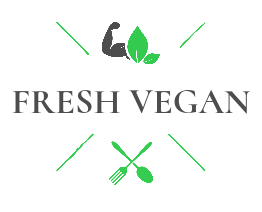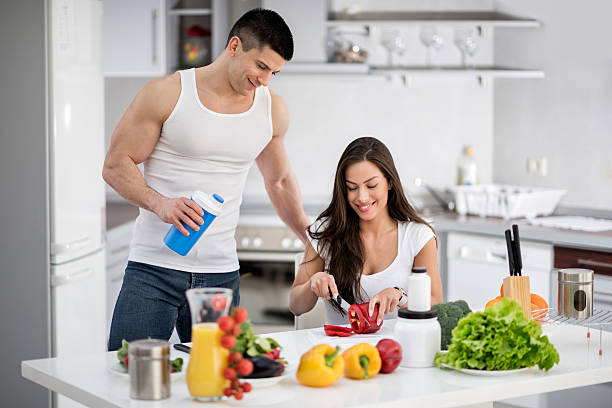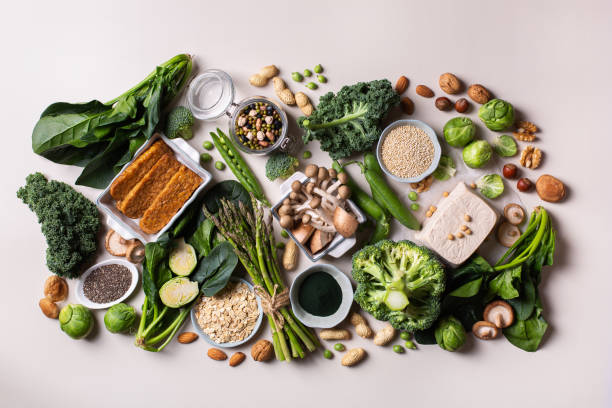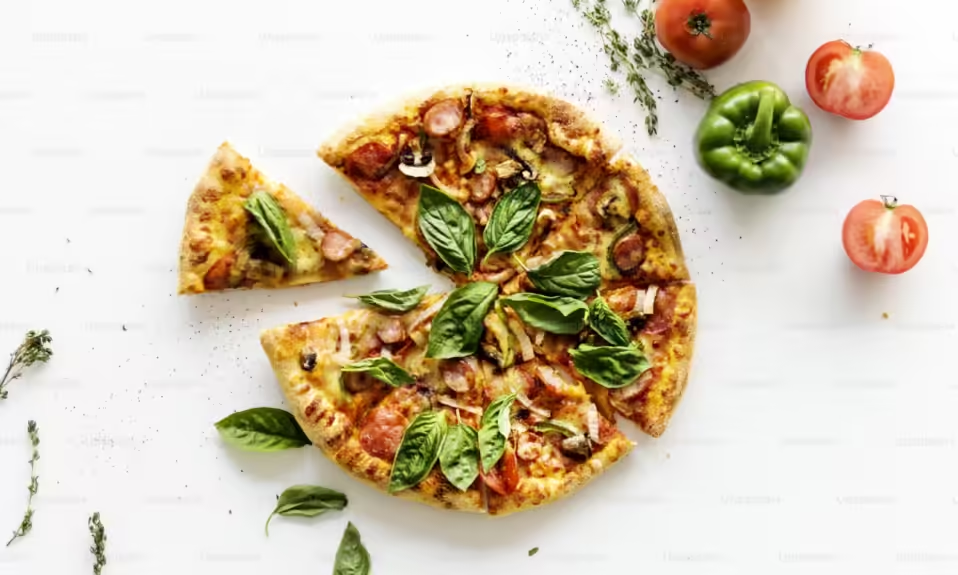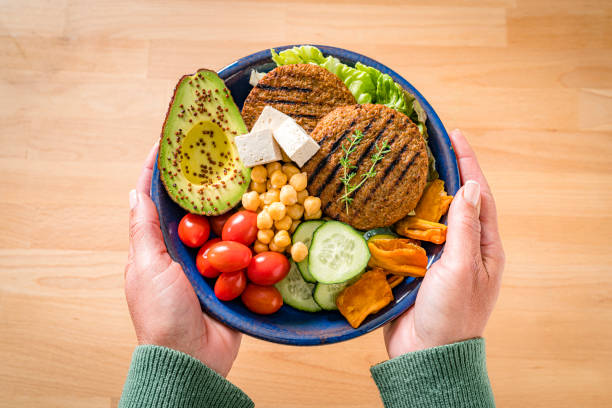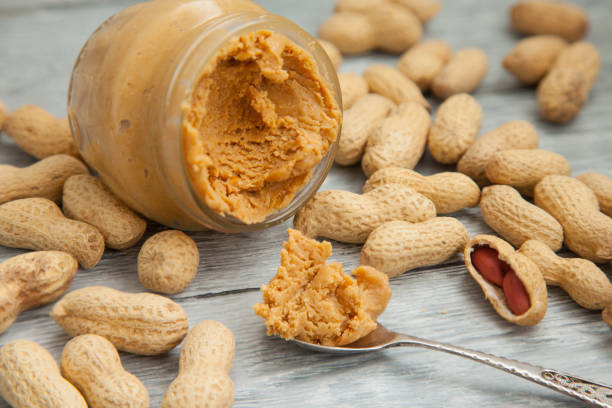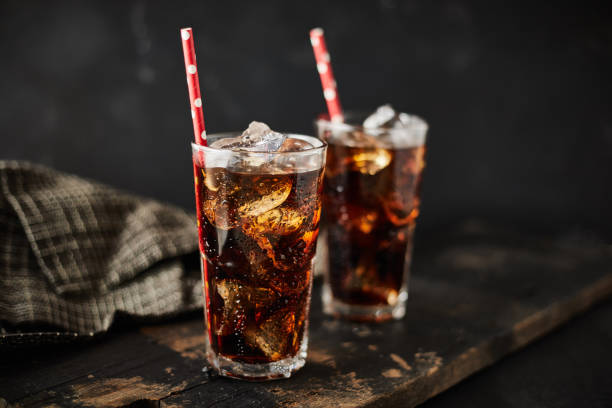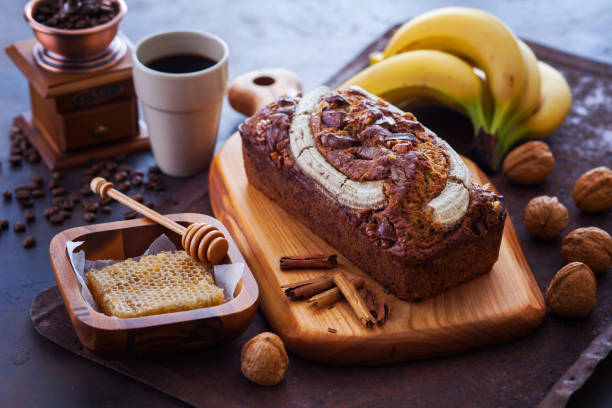It is a popular myth that gulping steaks and eggs is the only way to build muscles. But hey, let me pop the bubble for you. Vegan for body building is as effective as an animal-based diet. Plus, vegan body builders have the same caloric needs as non-vegans. The only difference is that vegans get their calories from plant-based food.
Veganism shows potential benefits to heart, brain, and digestive health. Plus, it prevents obesity and certain types of cancer. Which is why more and more people are becoming vegans, including bodybuilders.
Let’s take a closer look at how you can use vegan diet to build big muscles without having nutritional deficiencies.
How vegan works for male body builders?
Body building for males is a little more encouraging as they have naturally bigger body structure, more metabolic rate, and greater responses to training. Their bigger body structure helps them lift heavier weights, which further maximizes their muscle growth.
Male body builders focus more on the exercises of the upper body (arms, abs, and chest), like bench presses. They particularly aim to develop a V-shaped torso. So, they should consume more protein. Natural vegan protein sources, including tofu, lentils, and beans.
Although higher testosterone levels in males facilitate protein synthesis to recover and build muscles. Body building for vegan males still demands more protein. The average amount of protein consumption for males should be 1.6-2.2 g per kg of body weight.
Besides protein, body building for vegan males requires a variety of plant-based and well-balanced diets containing whole grains and healthy fats to fulfil their nutritional needs. Avocados, seeds, and nuts are rich sources of good fats.
How does vegan work for female build builders?
Females lose menstrual blood every single month, which drops the level of nutrients (calcium and iron) and energy. This is why, body building for vegan females could be a little more challenging. They particularly need to take more iron and calcium to regain energy and compensate for the nutritional deficiencies they might experience due to blood loss.
Bodybuilding for vegan females requires an adequate nutrition-rich plant-based diet to perform strength training. A majority of females focus more on lower body exercises (like squats) as they aim to enhance that area.
During squats, most of the pressure is on knee joints, so take good care of bones. Take calcium from leafy greens, tofu, and fortified plant milk. Broccoli, spinach, and tahini are good iron sources for vegans. To reduce menstrual cramps and improve muscle function, take magnesium-rich foods like pumpkin seeds and black beans.
Females may take more time to build muscle due to their lower testosterone levels than males. However, their estrogen hormone facilitates muscle recovery and training, particularly during periods.
Female bodybuilders should also keep their protein levels optimum. On average, a female needs 1.4-1.8g of protein per kg of body weight. So, it is crucial to take plant-based protein as per the body’s requirement. Take vegan protein powders as supplements if you’re not taking sufficient protein from food.
Body building for vegan females can be less daunting if they take extra good care of themselves. During the initial days of periods, the energy level is low. So, reduce the workout intensity and get proper sleep to facilitate muscle recovery. Moreover, stay hydrated to prevent bloating.
Which macronutrients are best for vegan bodybuilders?
Macronutrients (carbohydrates, proteins, and fats) are the primary energy sources for the body. And each performs its own specific function. It is suggested to monitor your diet intake, particularly if you depend on vegan for body building.
The idea of keeping track of macronutrients is to make sure you get the right balance of them every single day. Also, vegan food can be boring, so have a variety of options in hand to make it exciting.
Bodybuilders follow the same diet ratio, whether they are vegans or non-vegans. The caloric goals depend on the individual’s needs and activity level. It has less to do with the food source of calories, as far as they are meeting their nutritional target.
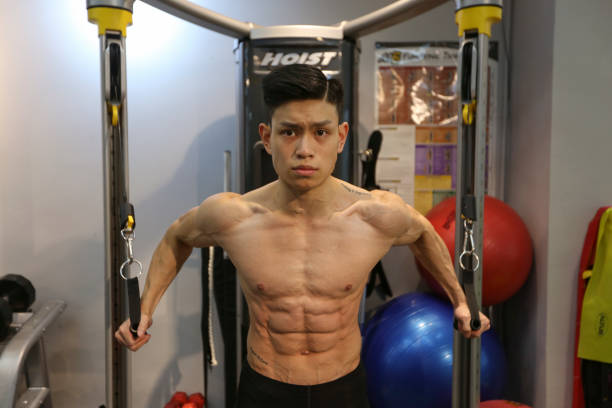
Healthy carbs for vegan bodybuilders:
Carbohydrates are a vital part of vegan diet for bodybuilding. They break down into glucose and provide energy to muscles for workouts. Carbs have the capacity to be stored in the muscles and liver in the form of glycogen. This stored glycogen works as an energy reserve and fuels the body builders during peak performance, and aids muscle recovery.
A majority of people have a misconception that carbs are worthless, especially for bodybuilding. However, the reality is, carbs are as important as proteins or fats. You just need to understand which kind of carbs are good for your body.
There are two kinds of carbs: good carbs and bad carbs. Good carbs (aka complex carbs) are full of nutrition and take more time to digest. Slow digestion results in a slow and steady supply of energy that prevents sudden sugar spikes in the body.
Healthy carbs sources include
- Oats
- Whole grains
- Brown rice
- Lentils
- Quinoa
- Beans
- Sweet potatoes
- Carrots
- Peas
Bad carbs (also called processed carbs) are those from which some nutrients and fiber are removed to refine them. They are quickly digested and cause an increase in blood sugar for a short duration. This makes a person hungry and makes room for more food, which causes obesity.
Plus, vegans for body building already follow a restrictive food regimen. So, taking processed carbs or unhealthy food will further affect their performance in the gym. Which is why, it’s better not to buy any such bad carbs. Not having these items will help you stay away from them.
Avoid processed carbs, such as
- White bread
- White rice
- Plain flour
- Refined pasta
- White rice
- Cookies
- Pastries
Choose healthy options like quinoa salads and bran bread sandwiches with peanut butter. You can also have whole-grain pasta with starchy vegetables (corn, peas, and carrots) or non-starchy veggies like leafy greens. They will provide both micronutrients and fibers.
Fruits are excellent sources of carbohydrates. Plus, they can be consumed with pre- or post-workout meals. They not only fulfil sweet cravings but also provide fibers, nutrients, and minerals. The best fruits for bodybuilders include:
- Banana
- Apple
- Cantaloupe
- Blueberries
- Pear
- Watermelon
- Oranges
- Grapes
- Strawberries
- Raspberries
- Pineapple
On average, bodybuilders are recommended to take 4-7g of carbs per kg of body weight. For example, a 75kg vegan should consume 300-525g of carbs every day for body building.
Protein sources and diet plan for vegan bodybuilders:
High protein vegan diet for body building is crucial for both vegan males and females. Protein is made by a combination of 20 amino acids. Out of 20, 9 are essential amino acids, which are not produced in our body. So, they must be obtained from external sources.
Animal-based protein is high-quality protein containing all 9 essential amino acids. On the other hand, plant-sourced proteins are of lower quality. Plant protein sources do not contain all 9 essential amino acids except quinoa and soy. This is why, it is crucial to eat a variety of plant-based proteins to consume all 9 essential amino acids.
The amino acid leucine is missing from most of the plant-based protein. Make sure to consume this amino acid, as this is vital for building muscles. Leucine can be obtained from
- Mung beans
- Soybeans
- Sesame seeds
- Lentils
- Hemp
- Spirulina
It is important to understand the science behind the development of muscles. Keep two things in mind for body building. First is an intense workout. Workout is hard on muscles, which breaks down the muscle protein into amino acids.
Secondly, you need sufficient nutrition (especially protein) to rebuild muscle fibers. So, bodybuilders are supposed to eat high protein vegan diet for body building.
Best protein options for vegan bodybuilders include
- Tofu
- Seitan
- Tempeh
- Kamut
- Nuts
- Quinoa
- Legumes
- Mycoprotein
You can also sprinkle nutritional yeast to your meals for additional protein and (savory) flavor. For every 2 teaspoons of yeast, add 3 grams of protein. Plus, it contains all 9 essential amino acids and vitamin B12.
Vegan bodybuilders cannot take protein from meat or eggs. So, they need to eat a high-protein vegan diet for body building. Here’s a generalized protein-rich meal plan to increase the muscle fiber of vegans.
For Breakfast
Protein Smoothie
1 cup of soy milk = 8 grams protein
1 scoop of pea protein powder = 20 grams of protein
1 tbsp of chia seed = 3 grams protein
Some spinach and 1 banana = 2 grams protein
Total protein: 33 grams
Late Morning Snack
Chickpea + Avocado Toast
1 slice of whole grain bread = 4 grams of protein
Half cup of mashed chickpea = 7 grams of protein
Half avocado = 1 gram protein
Total protein: 12 grams
For Lunch
Lentils + Quinoa Salad
1 cup lentil = 18 grams protein
1 cup of boiled quinoa = 8 grams protein
Mixed vegetables = 2 grams of protein
Total protein: 28 grams
Mid-afternoon Snack
Edamame + Nuts
1 cup of edamame = 17 grams protein
1 ounce of almonds = 6 grams protein
Total protein: 23 grams
Evening Snack
Hummus + Vegetables
Half a cup of hummus = 10 grams of protein
1 cup of carrots, bell peppers, and celery = 2 grams protein
1 ounce of walnuts = 4 grams protein
Total protein: 16 grams
Dinner
Stir-fried tofu
1 cup of tofu = 20 grams protein
1 cup of mixed veggies = 2 grams protein
1 cup of brown rice = 5 grams protein
Total protein: 27 grams
Another Protein Shake
1 scoop pea protein powder = 20 grams protein
8-ounce serving of almond milk = 1 gram of protein
Total protein: 21 grams
Per day average: 160g protein
Add more proteins and carbs to early meals of the day as well as approx. 1-2 hours before and after training. However, it is best to consult a registered dietitian and have a personalized meal plan as per your needs.

Healthy fat options for vegan bodybuilders:
Fats contain the most calories as compared to protein and carbohydrates. Even a small quantity of fat provides loads of calories. And this is exactly what bodybuilders want. They want high calories to grow muscle mass and support intense training.
Vitamins A, D, E, and K are crucial for several processes happening within the body. These four vitamins are fat-soluble. They will only dissolve in fats. This is why doctors recommend taking these vitamins along with fatty meals for better absorption.
Fats also contribute to the production of hormones. For all these reasons, fats are an essential part of vegan for body building. Healthy fat sources for vegan bodybuilders include
- Avocados
- Olives
- Coconut
- Almonds
- Seeds
- Walnuts
- Cashews
- Peanut butter
A vegan diet keeps the blood pressure moderate and the level of LDL cholesterol (aka bad fats) lower as compared to the meat-eaters. Walnuts are a rich source of omega-3 fatty acids as well as vitamins and minerals.
Flaxseed oil provides alpha-linolenic acid, which improves heart health and prevents cancer. So, taking these vegan fatty options will provide a plethora of health benefits.
Fat should be consumed around evening and night meals to slow down digestion. This sustains the protein supply to the body during the night, which is essential for muscle growth.
Vegans for body building are suggested to take 0.5g of fat per pound (1g per kg) of body weight every day. So, ideally, 175 pounds (80kg) of a male bodybuilder should consume 80g of fat every day.
Micronutrients and supplements for vegan bodybuilders:
It is better to avoid supplements if you are already having sufficient nutrients from vegan for body building. Supplements are manufactured for those who are nutritionally deficient. Supplement intake speeds up the process of muscle growth. Plus, supplements prepare you for strength training.
It is highly recommended that you consult your healthcare provider or registered dietitian to learn about your nutrient requirements and get a tailored supplementation plan. However, to give a generalized idea, we’ve mentioned the most common supplements for vegan bodybuilders below.
Protein powder
Vegan protein powders are the best way to supplement the vegan diet for body building. These protein supplements mostly have a mixture of proteins (like brown rice protein and pea protein). These multi-protein supplements provide all essential amino acids, which facilitate muscle recovery and growth.
Vegan protein powder can be used in cooking. However, they are best to have in post-workout shakes and smoothies. The popular choices of plant-based protein powders include
- Pea protein
- Hemp protein
- Brown rice protein
- Soy protein
- Sunflower seed protein
- Pumpkin seed protein
Creatine Monohydrate
After protein powder, creatine monohydrate is one of the best supplements for accelerating the muscle growth of body builders. It helps in performing high-intensity exercises like deadlifts.
Creatine is only present in meat. However, vegan-friendly creatine supplements do not contain any animal-derived ingredients. To effectively reach your bodybuilding goals, take creatine supplements.
- Start taking 20g per day for a week.
- After a week, take 3-5g of dose every day.
Omega-3 fatty acids
Omega-3 fatty acids lower down the swelling and joint aches in body builders after an injury or intense workout. Algal oil supplements are best for taking omega-3 fatty acids. These supplements provide the concentrated form of omega-3 fatty acids, DHA and EPA.
Other natural sources of omega-3 include
- Chia seeds
- Flax seeds
- Sunflower
- Almonds
- Walnuts
However, avoid taking omega-3 supplements if you are already taking loads of nuts and seeds.
Vitamin B12
Vitamin B12 is the only vitamin that is hard to get from vegan diet. It cannot be ignored since it is the main vitamin used to build muscles. Experts recommend taking fortified plant milk containing B12 and other vitamin B12 supplements if you are not already taking it in sufficient quantity. Natural sources of vitamin B12 include
- Nutritional yeast
- Wholegrain
- Cereals
- Almond milk
- Spinach
- Seaweeds (spirulina and dried nori)
You can also take cyanocobalamin and methylcobalamin, as they are the most common vitamin B12 supplements suitable for vegans.
Calcium
Vegans for body building are suggested to take calcium-fortified plant-based milk and yogurt to fulfil their calcium needs. Vegan females should especially concentrate on calcium intake to compensate for the monthly loss of calcium during the periods’ blood loss. However, don’t forget to take vitamin D to facilitate calcium absorption.
Calcium sources for vegans include
- Leafy green vegetables (kale and spinach)
- Tofu
- Almonds
- Okra
- Fortified plant milk (like soy milk)
- Pak choi
- Sesame seeds
- Legumes
Zinc
Zinc aids in muscle recovery in bodybuilders. There are plenty of plant-based zinc sources. However, zinc obtained from plant sources has low absorption as compared with animal-based food. So, eat a range of zinc-containing food.
You can take zinc from
- Sweet corn
- Tofu
- Quinoa
- Peas
- Cashew nuts
- Lima beans
- Wholegrain rice
- Lentils
- Asparagus
- Okra
In case of higher deficiency, take supplements such as zinc citrate or zinc gluconate.
Iron
Iron helps shift oxygen from the lungs to muscles, especially when you are trying to gain muscle. It also contributes to the production of proteins and hormones. Take fortified foods or supplements if you are not taking sufficient iron from food. However, iron supplements are not for all. Their excessive amount in the body can be harmful.
Natural iron sources for vegans include
- Spinach
- Broccoli
- Chard
- Dried apricot
- Tahini
- Beans
- Amaranth
- Raisins
- Molasses
- Mushrooms
Note that iron derived from plant sources has poor absorption capacity. So, take vitamin C to boost the absorption.
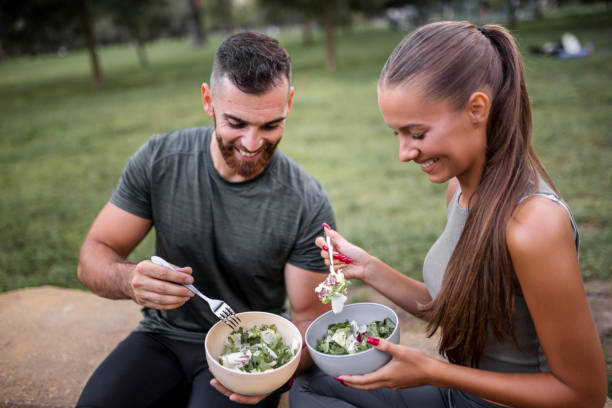
Different diet regimens for bulking and cutting season:
You need to follow different dietary regimens depending on your bodybuilding targets. During bulking season, take a high-calorie and protein-rich diet. The reason is you have to do intensive training and grow muscles during this phase. Take six balanced meals throughout the day during the bulking phase. The duration between each meal should be 2-3 hours.
While during the cutting phase, decrease the fat intake, and just maintain the muscle mass you’ve grown in the bulking phase. Cut down the number of meals from six to five per day. Take two-morning meals as before, but reduce the remaining meals from four to three.
So, there is no hard-and-fast rule about the exact balance of all three macronutrients for bodybuilding. However, maintain carbohydrate intake a little high, keep fat consumption low to moderate, and maintain protein intake sufficient to grow muscles effectively.
If you’re preparing for competition, modify the diet regimen a little bit. Reduce the consumption of calories and carbs and increase the consumption of healthy fats before the competition.
Take proper hydration and sleep!
Adequate hydration is as important as timely eating. Water helps in the metabolism of carbs. Plus, intense training causes water loss by sweating. Dehydration not only impairs muscle recovery but also hinders the workout regimen. Water and green tea are good options for vegan bodybuilders for hydration.
Additionally, take a good 8-hour sleep every day to let your muscles rest and repair. You may also take off days in between your workout routine to heal and come back with more energy.
Key takeaway!
The ratio of nutrients for bodybuilders is totally subjective. It depends on the body weight, metabolism, and workout level of the individual. However, the estimated average of macronutrients is 55-60% of carbs, 15-20% of fat, and 25-30% of proteins.
Preplan your diet plans in a meal journal. Vegan food is slightly low in calories, so eat more of it to get sufficient nutrients. Consume plenty of vegan protein sources to have a complete protein profile containing all essential amino acids.
FAQs:
Can a vegan be a bodybuilder?
Hell yes! Vegans can be wonderful bodybuilders. They just need to plan meals properly and take a variety of vegan food to fulfil the nutritional requirements for body building. Plus, they need to be aware of which foods and supplements to add to their diet. Consult a dietitian or healthcare provider for a personalized plan.
Can you build muscle as a vegan?
Yes, vegans can do body building as effectively as non-vegans. Taking the right balance of nutrients along with resistance training builds muscles effectively. However, vegan protein is incomplete protein as it lacks a few essential amino acids. So, it is crucial to take a variety of vegan protein sources to fulfil the requirement of a complete amino acid profile and build muscles.
How much do vegan bodybuilders eat?
Vegan bodybuilders have the same caloric needs as non-vegan bodybuilders. The ratio of nutrients depends on the body weight, metabolism and workout level of an individual. On average, it is suggested to take 15- 20 calories per pound of body weight. Male vegans for body building need approx. 2500-3500 calories, whereas female vegans require 2000-3000 calories to build muscles.
How to get 160g of protein a day vegan?
You can have 160g of protein a day by having a high-protein diet, including lentils, tofu, chickpeas, tempeh, nuts, and seitan. Take vegan protein powders if you’re not taking sufficient protein from food. Having a variety of protein foods and supplements will aid you in reaching the goal.
